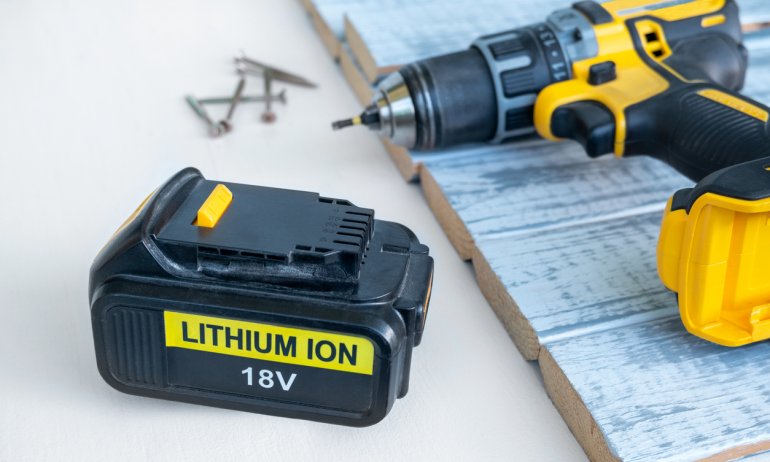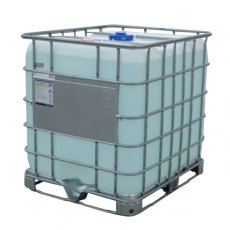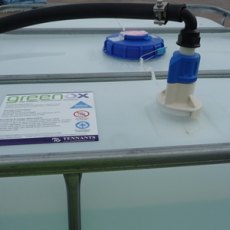Adblue IBC

AdBlue is a crucial component in reducing harmful emissions from diesel engines, playing an essential role in meeting stringent environmental regulations. In the UK, the use of AdBlue has become increasingly important as the government implements policies aimed at curbing air pollution and promoting cleaner technologies. Intermediate Bulk Containers (IBCs) are widely used in the storage and transportation of AdBlue, providing a safe and efficient solution for businesses that rely on this vital substance.
This section will provide an overview of AdBlue IBCs, their significance, and the role they play in facilitating compliance with environmental standards.
What is Adblue?
Adblue is a non-toxic, high-purity, colourless solution which works by converting nitrogen oxide emissions in the exhaust gas of diesel engines, into nitrogen and water. If your vehicle is set up with SCR (Selective Catalytic Reduction) then it will have a separate tank for Adblue.
Composed of 32.5% urea and 67.5% deionized water, it is classified as a non-toxic and safe product.
AdBlue is injected into the exhaust stream of diesel engines to reduce the amount of NOx emitted, helping them to meet emissions regulations.
For a growing fleet of Diesel run vehicles, Adblue IBC's have the provision to store volumes of AdBlue in easy to manage containers. Each IBC is the size of a standard Pallet and can be easily shipped between depots.
Applications of AdBlue
AdBlue is used across various sectors and applications, primarily in diesel-powered vehicles and machinery. In the commercial vehicle sector, trucks, buses, and vans equipped with SCR technology rely on AdBlue to meet Euro 6 emissions standards. The agricultural sector utilises AdBlue in tractors and other farming equipment to reduce emissions and comply with environmental regulations.
Construction and industrial equipment, including excavators, bulldozers, and generators, also incorporate SCR systems that require AdBlue for optimal performance. Furthermore, marine applications are emerging as the industry moved toward greener technologies, making AdBlue an essential component for compliance with emissions regulations in shipping.
The below section, explains the types of AdBlue containers we offer here at Fuel Tank Shop, that come supplied with AdBlue within them, making it easier to integrate with your systems, the one-stop shop!
AdBlue IBCs (Intermediate Bulk Containers)
Intermediate Bulk Containers (IBCs) are specially designed containers used for the storage and transportation of bulk liquids, including AdBlue. IBCs typically consist of a robust outer frame made from steel or plastic, encasing a collapsible inner bladder that holds the liquid. The design of the IBCs allows for an efficient use of space, ease of handling, and safe transportation of AdBlue.
The construction materials used in AdBlue IBCs are selected to ensure compatibility with the chemical properties of AdBlue, preventing contamination and degradation. Common materials include food-grade polyethylene or stainless steel, which are resistant to corrosion and maintain the purity of the stored liquid.
Supply of Adblue IBCs
We offer a comprehensive service for supplying full IBCs of AdBlue, catering to businesses across various sectors that require a consistent and reliable source of this essential solution. Our full IBCs come filled with AdBlue, allowing for seamless integration into your operations.
To facilitate a cost-effective solution, we implement a refundable deposit system for empty IBCs. When you return the empty IBC, we refund the deposit, making it an economical choice for our customers,
AdBlue IBCs
Storage and Handling of AdBlue
Proper Storage and handling of AdBlue are crucial to maintaining is quality and effectiveness. AdBlue should be stored in a cool, dry place, away from direct sunlight and extreme temperatures, which can cause degradation of the solution, Our Adblue IBCs provide an ideal storage solution, as they can be stacked and stored efficiently while ensuring easy access for dispensing.
Handling precautions are essential to ensure the integrity of AdBlue. It should be kept sealed to prevent contamination, and any spills should be cleaned up immediately to avoid damage to the environment. Regular checks should be conducted to ensure that the Containers remain in good condition and that the AdBlue is free from impurities.
Adblue containers, especially IBCs are integral to the effective storage and transportation of AdBlue, a vital solution for modern diesel engines. With the increasing focus on reducing emissions and promoting cleaner technologies, AdBlue plays a crucial role in enabling compliance with environmental regulations across various industries in the UK.
Read More from Fuel Tank Shop
.png)
Diesel Transfer Pumps Explained

Lithium-Ion Battery Storage: A Comprehensive Guide
Frequently Asked Questions
IBC's
IBC's
How do I safely fill an IBC?
To safely fill an IBC first make sure that the pallet, cage and bottle and valve are suitable for use with the intended product. Ensure that the valve is securely tighten to the inner bottle and that the valve is closed and that the drip cap is secured and tightened. Check that the inside of the bottle is clean. When hot filling product do not exceed 65°C. When bottom filling make sure that the vents are functioning correctly or open the top cap. Do not over fill the IBC. After filling, if the product has a UN number, ensure that the lid seal is correctly positioned and tighten the screw cap to 70-80 Newton/Meters.
How do I transport an IBC safely?
Do not lift IBCs from the top frame. Ensure that the fork truck tines are fully inserted under the IBC before lifting. Ensure that the vehicle floor is in good condition and free of all nails etc. that could puncture the IBC. Always transport IBCs with the correct labelling attached to the ID Plate.
Always secure IBCs to prevent possible movement during transit.
Can the IBC's (intermediate bulk containers) be stacked?
Yes, depending on the pallet type, our IBCs can be stacked as follows whether empty or full:
MX IBCs - with metal or plastic pallets - Up to 4 High (with a maximum SG of 1.6)
SX IBCs - with metal pallets - Up to 4 High (with a maximum SG of 1.6)
LX IBCs - with wooden or plastic pallets - Up to 3 High (with a maximum SG of 1.4)

 Login
Login




